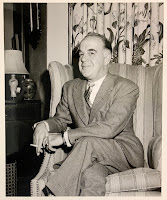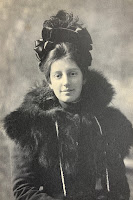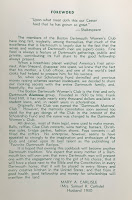 In 1963, 23 headmasters of prestigious preparatory schools met with the intention of expanding their student bodies to underrepresented and disadvantaged students, which eventually led to the creation of the Independent Schools Talent Search Program (ISTSP). That same year, faculty and staff at Dartmouth proposed that the College begin a summer academic program targeting deprived teenagers.
In 1963, 23 headmasters of prestigious preparatory schools met with the intention of expanding their student bodies to underrepresented and disadvantaged students, which eventually led to the creation of the Independent Schools Talent Search Program (ISTSP). That same year, faculty and staff at Dartmouth proposed that the College begin a summer academic program targeting deprived teenagers.In a joint effort between the ISTSP and Dartmouth, the ABC (A Better Chance) Program was formed with the goal of giving students from underprivileged backgrounds the skills needed succeed in competitive preparatory schools, and eventually attend college and pursue leadership roles in society. Dartmouth took the lead in providing students with an intensive summer program to help bridge the gap between their prior educational institutions and their future boarding schools, while the preparatory schools were expected to prepare admitted students from the program for college.
In the summer of 1964, 55 boys came to Dartmouth as ABC students, and the number of talented and qualified students steadily grew, as well as the number of colleges and universities. By 1969, over 1,400 students had been placed in private preparatory schools through the program. However, the growing numbers of qualified students quickly outpaced the space and resources of the participating private schools, making clear that the program needed to expand. The public school ABC Program was formed to meet the increased need, and involved housing 10 to 14 ABC students in a predominantly white community with a strong public school system that could still give students skills to excel in college.
The public school leg of the program kicked off at Hanover High School, and was modeled after the boarding school experience. Students lived with a high school teacher, their family, and two Dartmouth undergraduates. The program was an immense success. By 1970, 15 communities had developed their own ABC residences, serving 196 public school ABC students. Interestingly, the Hanover High School program was also the first to admit female students, showing the opportunity for the program to successfully implement co-education.
Posted from an online exhibit curated by Anneliese Thomas '19, recipient of a Historical Accountability Student Research Fellowship during the 2019 Winter term. The Historical Accountability Student Research Program provides funding for Dartmouth students to conduct research with primary sources on a topic related to issues of inclusivity and diversity in the college's past. For more information, visit the program's website.











